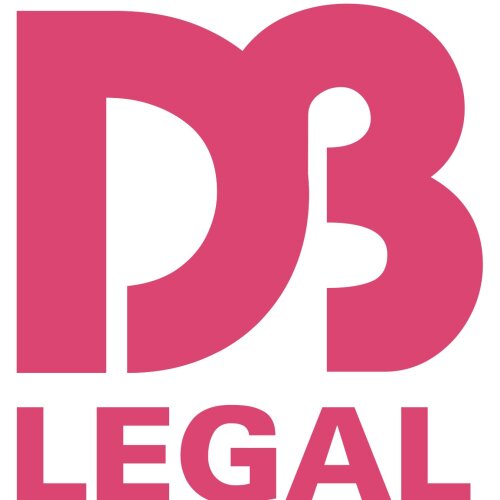Best Tax Increment Financing Lawyers in Hoi An
Share your needs with us, get contacted by law firms.
Free. Takes 2 min.
List of the best lawyers in Hoi An, Vietnam
About Tax Increment Financing Law in Hoi An, Vietnam
Tax Increment Financing (TIF) is a financial tool used by local governments in Hoi An, Vietnam, to stimulate economic development or redevelopment in designated areas. This mechanism allows municipalities to capture future increases in property tax revenues generated by new development or improvements within a specific district to fund infrastructure improvements or related projects. TIF is particularly valuable in ensuring sustainable urban development while preserving the cultural heritage of areas like Hoi An.
Why You May Need a Lawyer
Engaging with Tax Increment Financing can be complicated due to its intersection with various legal, financial, and real estate issues. Common situations where legal advice could be beneficial include:
- Understanding the eligibility criteria and application process for TIF.
- Navigating the complex regulatory framework governing TIF in Hoi An.
- Negotiating TIF agreements with local authorities or developers.
- Dealing with disputes or challenges related to TIF-funded projects.
- Ensuring compliance with both local and national taxation laws.
Local Laws Overview
The local legal framework for Tax Increment Financing in Hoi An encompasses several critical aspects:
- Designation of TIF Districts: Areas selected for TIF must meet specific criteria, often requiring evidence of economic need and potential for economic growth.
- Revenue Allocation: Laws dictate how incremental tax revenues are allocated to fund development projects within the TIF district.
- Cost-Benefit Analysis: Evaluations are often mandated to ensure that the benefits of a TIF project outweigh the costs, safeguarding public interests.
- Transparency and Reporting: Regular reporting and audits are required to maintain transparency and accountability for TIF projects.
Frequently Asked Questions
What is the primary purpose of TIF in Hoi An?
TIF is primarily intended to stimulate economic development and urban renewal, particularly in areas that require substantial infrastructure improvements.
How are the boundaries of a TIF district determined?
TIF district boundaries are determined based on the socio-economic conditions of an area and its potential for development, subject to approval by local government authorities.
Who oversees the implementation of TIF in Hoi An?
The implementation of TIF is overseen by local government bodies, including city planners and financial officials in consultation with developers and community stakeholders.
Can TIF be used for residential projects?
Yes, TIF can be used for residential projects, especially if they include affordable housing elements or contribute to economic revitalization.
Are there any risks associated with TIF?
Risks include potential increases in property taxes, displacement of current residents, and financial over-reliance on projected tax increments that may not materialize.
How long does a TIF district typically last?
The lifespan of a TIF district can vary but commonly ranges from 15 to 30 years, depending on the state laws and specific project goals.
Can existing businesses benefit from TIF?
Existing businesses can benefit indirectly through improved infrastructure, increased foot traffic, and revitalized areas resulting from TIF projects.
How is the success of a TIF project measured?
Success is often measured by the economic growth in the district, such as increased property values, job creation, and additional investment beyond TIF-supported improvements.
What happens when a TIF district expires?
When a TIF district expires, the additional tax revenues revert to the original taxing bodies without the increment financing designation.
Are public hearings required for TIF projects?
Yes, public hearings are typically required to ensure community involvement and transparency in the decision-making process.
Additional Resources
For more information on TIF and related laws in Hoi An, consider reaching out to the following resources:
- Hoi An City Planning Department
- The Ministry of Finance, Vietnam
- Local chambers of commerce
- Legal advisory firms specialized in Vietnamese urban development and finance law
- University-based urban development research centers
Next Steps
If you require legal assistance in Tax Increment Financing in Hoi An, begin by consulting a local attorney experienced in urban development and finance law. Gather all relevant documents and information about your specific situation so your legal advisor can provide the most accurate guidance. Consider attending public meetings or workshops on urban development to gain a deeper understanding of TIF processes in Hoi An. Finally, staying engaged with community organizations and local government updates will help you remain informed and proactive in any TIF-related endeavors.
Lawzana helps you find the best lawyers and law firms in Hoi An through a curated and pre-screened list of qualified legal professionals. Our platform offers rankings and detailed profiles of attorneys and law firms, allowing you to compare based on practice areas, including Tax Increment Financing, experience, and client feedback.
Each profile includes a description of the firm's areas of practice, client reviews, team members and partners, year of establishment, spoken languages, office locations, contact information, social media presence, and any published articles or resources. Most firms on our platform speak English and are experienced in both local and international legal matters.
Get a quote from top-rated law firms in Hoi An, Vietnam — quickly, securely, and without unnecessary hassle.
Disclaimer:
The information provided on this page is for general informational purposes only and does not constitute legal advice. While we strive to ensure the accuracy and relevance of the content, legal information may change over time, and interpretations of the law can vary. You should always consult with a qualified legal professional for advice specific to your situation.
We disclaim all liability for actions taken or not taken based on the content of this page. If you believe any information is incorrect or outdated, please contact us, and we will review and update it where appropriate.








